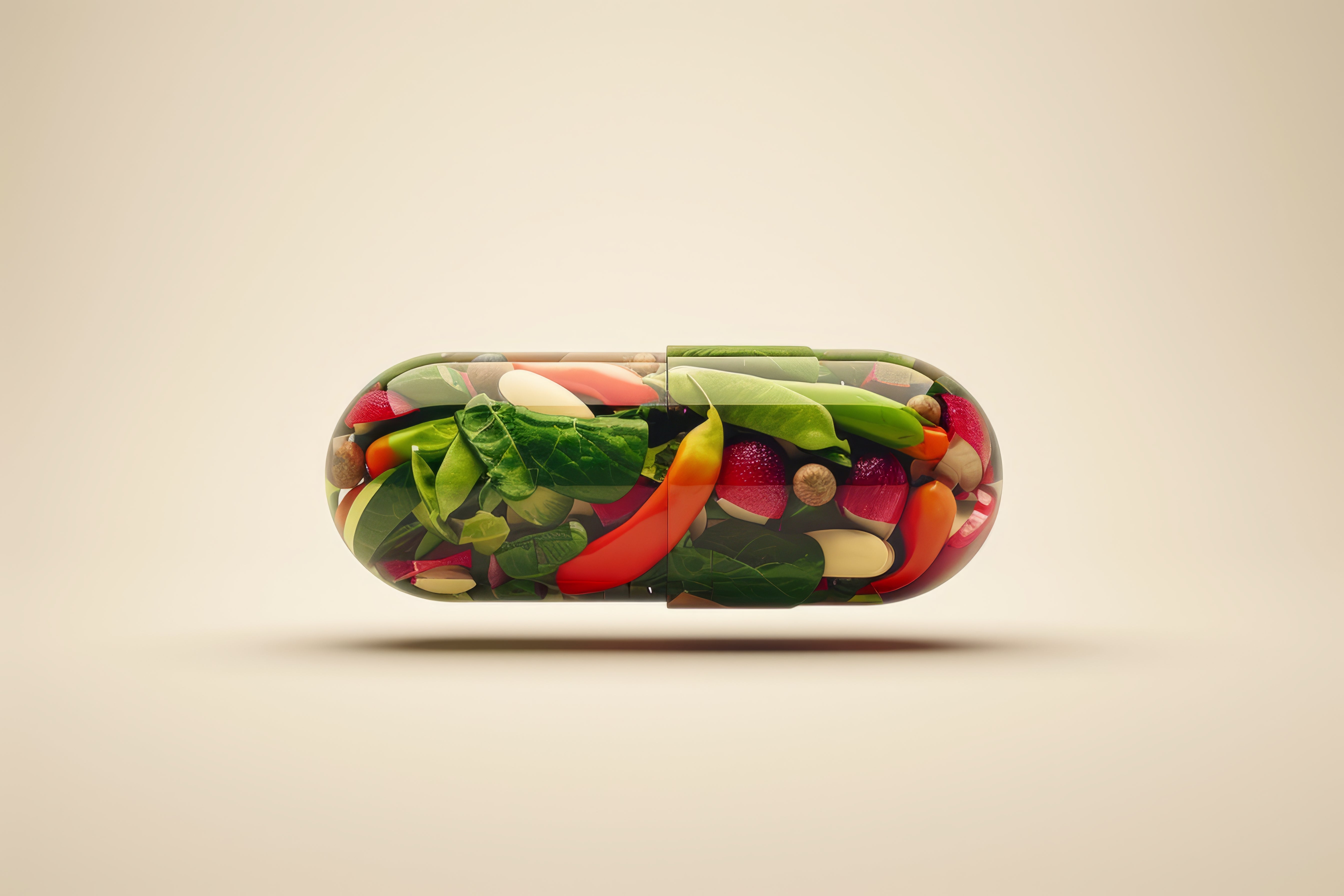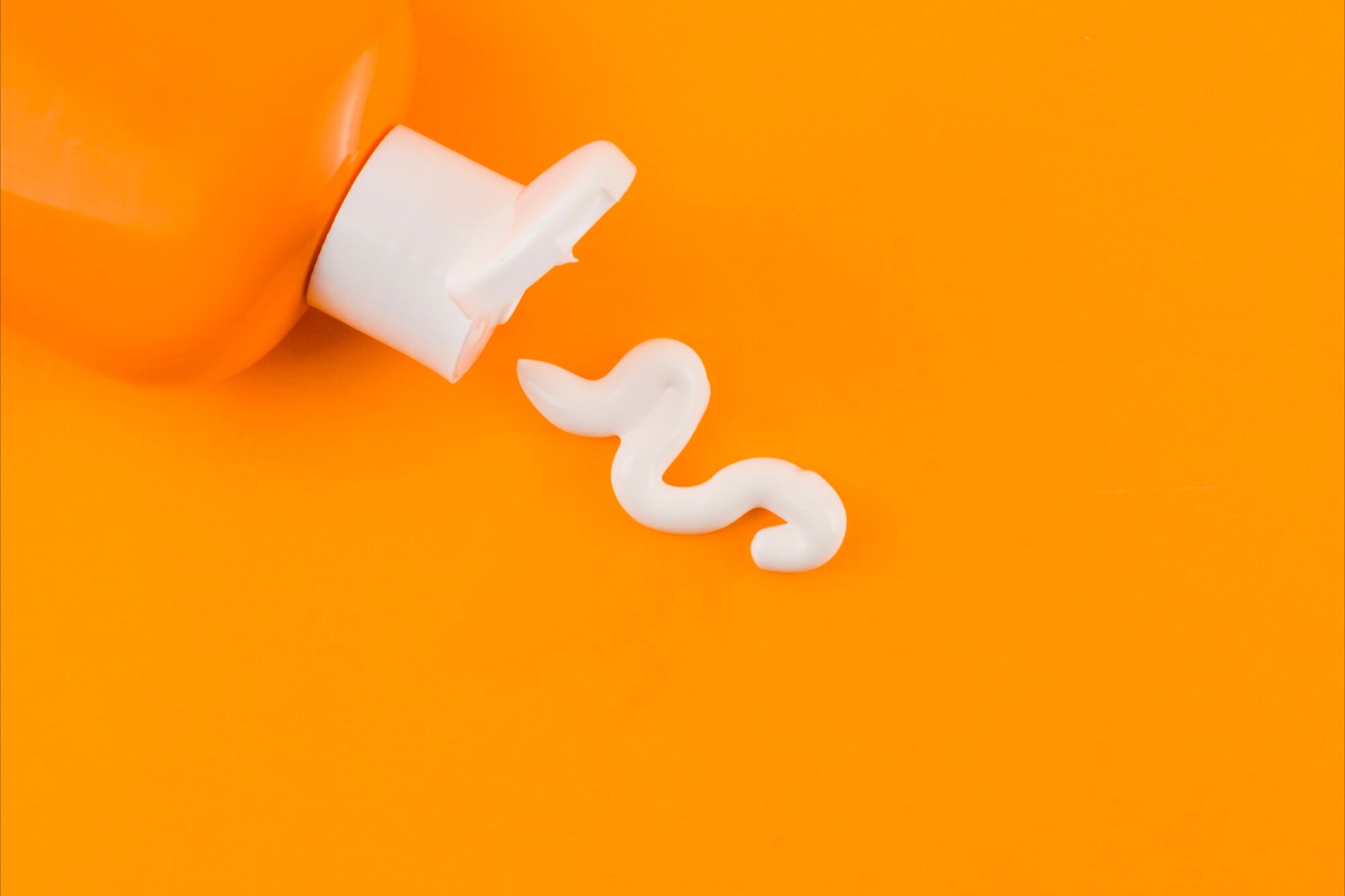We become what we consume. This applies to our skin aptly. The skin, our body's largest organ, requires a steady supply of nutrients to maintain its barrier function, hydration, elasticity, and ability to heal and protect. It is proven through scientific research that specific vitamins, minerals, antioxidants, and fatty acids modulate and mediate biochemical pathways which are crucial for wound healing, extracellular matrix (ECM) integrity, and hydration. Some of the key nutrients that our skin needs on a regular basis are as following:
Key Nutrients and Their Role in Skin Health
Vitamin C: The Collagen Booster
Vitamin C (ascorbic acid) is a cofactor in collagen synthesis, essential for maintaining skin structure, elasticity, and wound healing. It activates prolyl hydroxylase, an enzyme that stabilizes collagen fibers in the extracellular matrix (ECM)
- Best sources: Citrus fruits, bell peppers, strawberries, and kiwifruit.
Vitamin A: Regulating Keratinocyte Differentiation
Vitamin A (retinol and beta-carotene) modulates keratinocyte proliferation and enhances epidermal differentiation, preventing hyperkeratosis and supporting wound healing
- Best sources: Sweet potatoes, carrots, spinach, and liver.
3. Vitamin E: The Lipid Barrier Protector
Vitamin E acts as an antioxidant, preventing lipid peroxidation in cell membranes, which is crucial for moisture retention and barrier function
- Best sources: Almonds, sunflower seeds, avocados, and olive oil.
4. Omega-3 Fatty Acids: Anti-Inflammatory and Hydration Support
Omega-3 fatty acids, particularly EPA and DHA, help reduce inflammatory cytokines like IL-6 and TNF-α, protecting against skin barrier dysfunction and dehydration.
- Best sources: Salmon, flaxseeds, walnuts, and chia seeds.
5. Zinc: Essential for Wound Healing and Barrier Integrity
Zinc regulates keratinocyte proliferation, inflammation, and immune response, accelerating re-epithelialization in wound healing.
- Best sources: Pumpkin seeds, chickpeas, oysters, and red meat.
6. Hyaluronic Acid Precursors: Hydration and ECM Elasticity
Hyaluronic acid, synthesized via hyaluronan synthases, retains moisture in the dermis, preventing transepidermal water loss (TEWL).
- Best sources: Bone broth, soy-based foods, mushrooms, and leafy greens.
7. Polyphenols: Protection Against Oxidative Stress
Polyphenols modulate Nrf2 pathways, enhancing antioxidant defense and preventing UV-induced collagen degradation.
- Best sources: Green tea, dark chocolate, grapes, and blueberries.
8. Protein and Amino Acids: Building Blocks for Skin Regeneration
Amino acids play a critical role in collagen synthesis, tissue repair, and skin elasticity by serving as precursors for structural proteins and signaling molecules.
- Best sources: Eggs, lean meats, legumes, dairy, bone broth, and soy-based products.
Different amino acids contribute uniquely to skin health:
- Glycine: The most abundant amino acid in collagen, essential for skin elasticity and repair. It regulates fibroblast activity, crucial for wound healing.
- Proline: Enhances collagen stability by supporting hydroxylation processes in the extracellular matrix (ECM), improving skin texture.
- Lysine: Strengthens collagen cross-links and facilitates wound healing by stimulating keratinocyte migration.
- Arginine: Supports nitric oxide production, which enhances blood circulation to the skin, improving oxygenation and nutrient delivery.
- Cysteine: Precursor to glutathione, a powerful antioxidant that protects against oxidative stress and premature aging.
- Histidine: Aids in skin hydration by being a key component of the natural moisturizing factor (NMF) in the stratum corneum.
9. Trace Minerals: Enhancing Skin Repair and Function
- Copper: Essential for collagen cross-linking and angiogenesis, promoting wound healing and skin elasticity.
- Selenium: Protects against UV-induced oxidative stress and prevents premature aging.
- Iron: Supports oxygen transport to skin cells, crucial for regeneration and repair.
- Manganese: A cofactor for prolidase, an enzyme involved in collagen metabolism, accelerating wound healing.
- Best sources: Nuts, seeds, whole grains, shellfish, and leafy greens.
Biochemical Pathways Influenced by Nutrition
Collagen Synthesis and ECM Integrity
- Vitamin C activates prolyl hydroxylase, which stabilizes collagen fibers.
- Amino acids like glycine and proline serve as primary building blocks.
- Silicon supports collagen cross-linking, increasing skin elasticity.
Wound Healing and Skin Regeneration
- Zinc regulates keratinocyte migration, accelerating wound closure.
- Vitamin A promotes epidermal differentiation, reducing hyperkeratosis.
- Omega-3s lower inflammatory cytokines, minimizing tissue damage.
Skin Barrier Function and Hydration
- Vitamin E prevents lipid peroxidation, maintaining the skin barrier.
- Hyaluronic acid precursors support moisture retention.
- Polyphenols upregulate Nrf2, enhancing antioxidant defenses.
A diverse and nutrient-rich diet directly impacts skin health, hydration, barrier function, and healing through biochemical pathways regulating collagen synthesis, wound repair, and oxidative stress response. Incorporating scientifically-backed foods optimizes skin resilience, hydration, and elasticity.




Share:
Chemical UV Filters, the help we never needed
Beautiful, As Is.